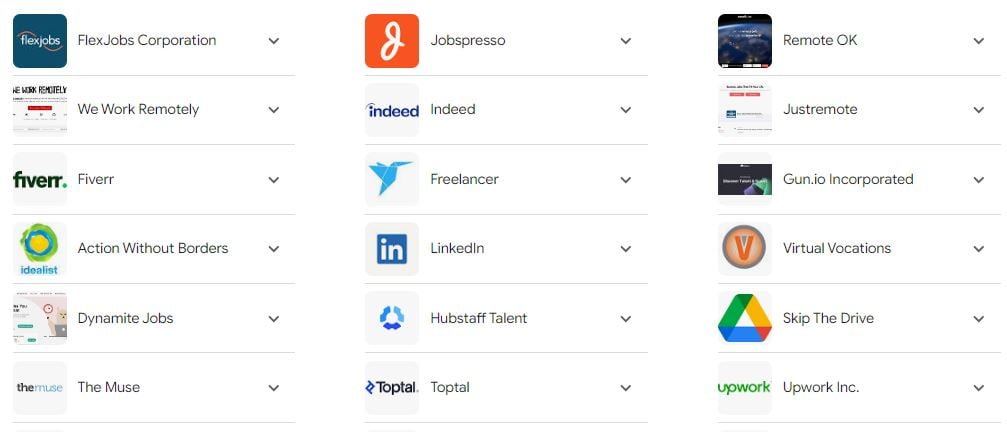As the demand for data-driven decision-making continues to grow across industries, remote data analyst jobs are becoming increasingly popular. In 2025, organizations are seeking skilled professionals who can navigate vast amounts of data to provide actionable insights and support strategic initiatives. This guide delves into the essentials of pursuing a career in remote data analysis, including necessary skills, tools, and strategies for success. Whether you’re a seasoned analyst or just starting your journey, this comprehensive resource aims to equip you with the knowledge to thrive in the evolving landscape of remote work.
Table of Contents
What is a Remote Data Analyst?

A Remote Data Analyst is a professional who collects, processes, and performs statistical analyses on large datasets, all while working from a location outside the traditional office environment. This role typically involves using various tools and software to interpret data trends, create reports, and provide actionable insights that help organizations make informed decisions. Remote Data Analysts often collaborate with teams via digital communication platforms, making it essential for them to possess strong analytical skills, attention to detail, and the ability to work independently. The flexibility of remote work allows these analysts to engage with clients and projects across various geographical locations, expanding their opportunities and influencing business strategies on a global scale.
Job Tasks and Responsibilities
A Remote Data Analyst has a diverse range of tasks and responsibilities that are crucial for driving data-informed decision-making within an organization. Key responsibilities include:
- Data Collection and Cleaning: Gathering data from various sources, including databases, spreadsheets, and APIs, and ensuring its accuracy through rigorous cleaning and validation processes.
- Data Analysis: Applying statistical methods and analytical techniques to interpret complex datasets, identifying trends, patterns, and correlations that can inform business strategies.
- Reporting: Creating comprehensive reports and visualizations to present findings in a clear and accessible manner, making use of tools like Tableau, Power BI, or Python libraries like Matplotlib and Seaborn.
- Collaboration: Working closely with cross-functional teams, including marketing, finance, and product development, to understand their data needs and support decision-making through actionable insights.
- Research: Staying updated with industry trends, tools, and techniques in data analysis to continuously improve analytical skills and methodologies.
These responsibilities highlight the multifaceted nature of the Remote Data Analyst role, where independence and effective communication are key to success in a remote working environment.
Want to work part time from anywhere? Read the following article
Best 26 Part Time Remote Jobs: Income Potential, Difficulty Level, and Platforms
Benefits of Remote Data Analyst Jobs

Working as a Remote Data Analyst comes with numerous advantages that appeal to professionals seeking flexibility and a progressive work-life balance. Some of the key benefits include:
- Flexibility: Remote Data Analysts can often set their own schedules, allowing them to work during their most productive hours and accommodate personal commitments. This flexibility can lead to increased job satisfaction and overall well-being.
- Cost Savings: Remote work eliminates commuting costs and can reduce expenses related to work attire, meals, and other office-related expenditures, financially benefiting employees.
- Access to a Global Job Market: Since remote positions are not bound by geographical limitations, Remote Data Analysts can apply for jobs globally, opening doors to diverse opportunities and collaborative experiences with international teams.
- Improved Work-Life Balance: The ability to structure one’s environment and schedule fosters a better work-life balance, as professionals can create a workspace that aligns with their personal preferences and lifestyle needs.
- Increased Focus and Productivity: Many remote workers find they can work more efficiently without the distractions commonly found in traditional office settings, leading to enhanced productivity and job performance.
These benefits make a career in remote data analysis not only appealing but also conducive to long-term professional growth and personal fulfillment.
Job Salary and Hourly Rates
The compensation for Remote Data Analysts can vary significantly based on experience, education, location, and the specific demands of the role. As of 2025, the average annual salary for a Remote Data Analyst in the United States typically ranges from $60,000 to $100,000, with more experienced analysts or those with specialized skills earning upwards of $120,000. Hourly rates for freelance or contract Remote Data Analysts generally fall between $30 and $70, depending on project complexity and required expertise. Factors such as industry, the size of the company, and geographical considerations can also influence salary figures, making it essential for analysts to research and negotiate their worth based on market trends and their individual qualifications.
Job Requirements and Certifications

To succeed as a Remote Data Analyst, certain educational qualifications, skills, and certifications can significantly enhance employability and professional credibility. Typically, candidates are expected to possess a bachelor’s degree in a relevant field such as mathematics, statistics, computer science, or data science. Advanced degrees, such as a master’s in data analytics or business intelligence, can provide a competitive edge.
In terms of skills, proficiency in data analysis tools and programming languages, such as SQL, Python, and R, is essential. Familiarity with data visualization tools like Tableau or Power BI, as well as a strong understanding of statistics and analytical methodologies, are crucial for interpreting data effectively. Additionally, soft skills like communication, critical thinking, and problem-solving are important, as Remote Data Analysts must convey complex information clearly to non-technical stakeholders.
To excel in remote data analyst positions, candidates must meet the following requirements:
- Educational Background: A Bachelor’s degree in mathematics, statistics, computer science, economics, or a related field.
- Technical Proficiency: Strong skills in data analytics tools and programming languages including SQL, R, Python, and SAS.
- Analytical Skills: Ability to interpret and analyze complex datasets, demonstrating strong problem-solving skills.
- Data Visualization: Experience with reporting and visualization tools such as Tableau or Power BI.
- Communication: Excellent skills in presenting findings and insights to team members and stakeholders.
- Remote Work Experience: Previous experience working remotely or in a virtual team environment.
- Multitasking: Ability to work independently and manage multiple projects simultaneously.
- Additional Skills (a plus): Knowledge of machine learning and predictive modeling.
Certifications can further validate one’s expertise and commitment to the field. Notable certifications include:
- Certified Analytics Professional (CAP): A globally recognized certification that demonstrates proficiency in the analytics process, from problem definition to deployment.
- Microsoft Certified: Data Analyst Associate: Focused on data visualization and analytics using Microsoft Power BI, this certification showcases skills in transforming raw data into meaningful insights.
- Google Data Analytics Professional Certificate: An entry-level certification that covers the foundational skills and tools needed for a career in data analytics.
Acquiring relevant certifications not only enhances job prospects but also ensures that Remote Data Analysts stay current with evolving trends and technologies in the industry.
Want to get a remote job that is easy and can be done anywhere? Read the following article
15 Best Remote Entry Level Jobs for 2025
Training Resources and Courses
To thrive as a Remote Data Analyst, ongoing education and skill enhancement are crucial. Numerous online platforms offer comprehensive courses tailored to data analytics and related technologies. Here are some valuable resources for aspiring analysts:
- Coursera: Hosts a variety of courses from leading universities and companies, covering essential topics such as data analysis, data visualization, and machine learning. Popular options include the “Data Science Specialization” from Johns Hopkins University and the “Google Data Analytics Professional Certificate.”
- edX: Offers university-level courses designed for flexible learning. Notable courses include “Data Analysis for Life Sciences” from Harvard University and “Statistics and R” from the Massachusetts Institute of Technology (MIT).
- Udacity: Features a “Data Analyst Nanodegree” program that includes hands-on projects and mentorship, focusing on skills such as SQL, data wrangling, and data visualization.
- LinkedIn Learning: Provides a range of courses and tutorials on data analytics tools and programming languages, along with soft skills development. Courses like “Learning SQL Programming” and “Data Visualization for Data Analysis” are particularly beneficial.
- Khan Academy: A great resource for foundational statistics and mathematics necessary for data analysis, with interactive exercises that reinforce learning.
Additionally, local workshops, webinars, and meet-up groups can provide networking opportunities and insights from industry professionals. Engaging with online forums and communities, such as those on Reddit or Stack Overflow, can also offer support and answer questions as you navigate your data analysis career. Keeping up with industry blogs and publications can further enhance your knowledge and proficiency in the ever-evolving field of data analytics.
Essential Tools and Software
To perform effectively as a Remote Data Analyst, familiarity with a variety of tools and software solutions is imperative. These tools not only facilitate data manipulation and analysis but also help in visualising information to make insights clearer and more accessible. Here are some essential tools that every data analyst should consider:
- Microsoft Excel: A foundational tool for data analysis, Excel allows for data entry, analysis, and visualization, making it indispensable for both small datasets and preliminary analyses.
- SQL (Structured Query Language): As the standard language for managing and manipulating relational databases, SQL is crucial for querying large datasets effectively.
- Programming Languages (R and Python): Both R and Python are widely used for statistical analysis and data manipulation. R excels in data visualization and statistical computing, while Python offers versatility with libraries like Pandas, NumPy, and SciPy for data handling and analysis.
- Data Visualization Tools: Software such as Tableau and Power BI helps analysts create interactive and insightful visualisations, enabling easier interpretation of complex data patterns.
- Jupyter Notebooks: An open-source web application that allows for the creation and sharing of live code, visualisations, and narrative text, making it a popular choice for combining code and analysis.
- Git: Understanding version control through Git is essential for managing code and collaborating with other data professionals, ensuring changes are tracked and managed efficiently.
- Cloud Platforms: Familiarity with cloud-based data storage and processing platforms, such as AWS, Google Cloud, or Microsoft Azure, facilitates handling big data and scalable analytics workflows.
Job Platforms for Remote Data Analysts

Finding remote work opportunities as a Data Analyst has never been easier, thanks to the multitude of online job platforms catering specifically to remote positions. Here are some notable platforms where aspiring Remote Data Analysts can seek employment:
- LinkedIn: This professional networking site not only connects you with industry professionals but also hosts a comprehensive job board where many companies post remote positions for data analysts. You can filter search results by location to find remote opportunities.
- Indeed: Known for its extensive job listings, Indeed allows you to search for “remote” roles specifically. You can also set up alerts for new job postings that match your interests and qualifications.
- Glassdoor: Beyond job postings, Glassdoor provides insights into company culture, salaries, and employee reviews, making it a valuable resource for finding remote data analyst positions that align with your career goals.
- FlexJobs: A dedicated platform for remote, part-time, freelance, and flexible jobs, FlexJobs screens job listings to ensure they are legitimate, which provides an extra layer of security for job seekers.
- AngelList: This platform is ideal for those interested in startups. AngelList features job listings from various tech startups, many of which offer remote data analyst positions.
- Remote.co: Focused specifically on remote jobs, Remote.co offers a variety of positions across different fields, including data analysis. It’s a great site to discover companies that prioritize remote work.
- SimplyHired: Similar to Indeed, SimplyHired provides a wide range of job listings, including remote data analyst roles. You can filter your search to highlight only remote opportunities.
Leveraging these platforms increases your chances of finding a suitable remote data analyst position while connecting you with potential employers in a global job market.
Have the skills and experience to assess and recruit people? Don’t waste it! Read the following article
Remote Recruiter Jobs : Unlocking Opportunities in 2025
Strategies for Finding and Applying for Remote Data Analyst Jobs
Successfully landing a remote data analyst position requires a strategic approach to job searching and application. Here are several effective strategies to enhance your chances:
- Tailor Your Resume and Cover Letter: Customize your resume and cover letter for each job application. Highlight relevant skills, experiences, and projects that align with the specific requirements of the position. Use keywords from the job description to pass applicant tracking systems and capture the attention of hiring managers.
- Build a Strong Online Presence: Create a professional LinkedIn profile that showcases your skills, experiences, and portfolio. Engage with industry-related content, connect with professionals in your field, and participate in discussions to increase your visibility.
- Network Actively: Networking is vital in gaining insights and referrals in the job market. Attend virtual industry meetups, webinars, and online conferences to connect with fellow data analysts and potential employers. Joining relevant online communities or forums can also lead to valuable connections and job opportunities.
- Showcase Your Work: Develop a portfolio that displays your data analysis projects, including case studies, visualizations, and insights derived from datasets. This not only demonstrates your technical skills but also provides tangible evidence of your analytical thinking and problem-solving abilities.
- Follow Up: After submitting your application, don’t hesitate to follow up with the hiring manager or recruiter. A polite inquiry can reinforce your interest in the position and help keep your application top of mind.
- Prepare for Remote Interviewing: Be ready for virtual interviews by testing your technology in advance and creating a quiet, professional space for the interview. Practice common data analyst interview questions and be prepared to showcase your skills through technical assessments or case studies.
- Stay Informed: Keep yourself updated with industry trends and emerging tools in data analytics. Continuous learning reflects enthusiasm and commitment, traits valued by employers.
Implementing these strategies will not only improve your job search but also position you as a strong candidate for remote data analyst roles.
Challenges of Remote Data Analyst

While the flexibility of remote work can be appealing, Remote Data Analysts often face unique challenges that can impact their productivity and job satisfaction. One significant issue is the potential for isolation; working from home can lead to feelings of disconnection from colleagues and the collaborative environment that typically enriches workplace culture. Additionally, communication barriers may arise, as remote teams rely heavily on digital tools for collaboration, which can sometimes lead to misunderstandings or missed messages.
Another challenge is the need for self-discipline and time management. Without a structured office environment, Remote Data Analysts must be proactive in managing their schedules and maintaining focus amid potential distractions at home. Furthermore, the reliance on digital tools can come with technical difficulties, such as software glitches or connectivity issues, which can disrupt workflow and lead to frustration. Lastly, Remote Data Analysts may also encounter challenges in accessing necessary resources and data, particularly if their organisation’s systems are not optimally configured for remote access. Addressing these challenges requires a combination of strong communication strategies, effective time management skills, and the proper setup of technology and resources.
Want to know more about Remote Customer Service Jobs? Read the following article
Thriving in Remote Customer Service Jobs The Ultimate Guide for 2025
Conclusion
In conclusion, pursuing a remote data analyst position offers a blend of flexibility and opportunity, but it also requires a strategic approach to navigating the job market and overcoming the inherent challenges of remote work. By leveraging the right job platforms, personalizing applications, building a strong online presence, and fostering professional networks, aspiring data analysts can enhance their chances of success. Moreover, being aware of and proactively addressing the challenges associated with remote work can lead to a more fulfilling and productive career. Embracing continual learning and adaptability will not only elevate your profile but also empower you to thrive in the evolving landscape of remote work in data analysis.



1 comment
Some really nice stuff on this internet site, I like it.